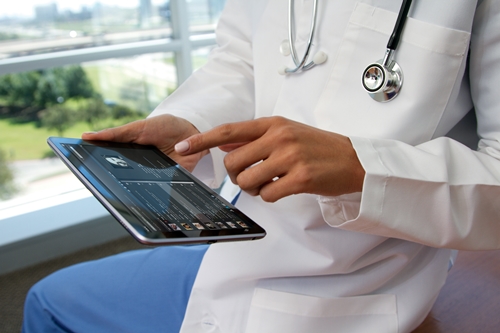3 December 2015. A cost-benefit analysis shows pharmaceutical companies could reap sizable savings in their planning and conduct of clinical trials if they made regular use of a European electronic health records database. The study, led by Data Mining Institute in Geneva, Switzerland with co-authors from several pharmaceutical companies, appears in the January 2016 issue of the journal Contemporary Clinical Trials (paid subscription required).
The database known as Electronic Health Records for Clinical Research, or EHR4CR, is a public-private undertaking funded by European Federation of Pharmaceutical Industries and Associations and the Innovative Medicines Initiative, a itself a public-private project of the European Commission and the federation. The database reuses data from electronic health records provided by hospitals and data warehouses to streamline the conduct of human clinical trials, a major cost factor in the development of new treatments.
The four-year EHR4CR project that ends in 2015 aims to provide a technical platform using health records data to improve the planning and operation of clinical trials, while preserving patient privacy and offering value to the hospitals providing the data. EHR4CR says its benefits can help pharmaceutical companies test the feasibility of trial protocols, select optimal sites for trials, improve and monitor progress of recruiting participants, and boost the quality of data collected.
The study is a computer simulation of an intermediate or late-stage clinical trial of a cancer drug conducted with current practices or making use of various EHR4CR services. The computer models, using Monte Carlo or probabilistic simulation methods, calculate the staff time and costs of three key activities: assessing the study protocol feasibility, identifying patients for recruitment, and carrying out the clinical study. The staff time and costs for each activity are then computed for each scenario: current practices and using EHR4CR.
The results show pharmaceutical companies worldwide could save as much as €2.1 billion ($US 2.2 billion) if they used all of three services from EHR4CR. The largest single savings would come from the execution of clinical trials that contribute €1.9 billion to the total. Savings from protocol feasibility assessments are estimated at €161.5 million and participant identification savings are calculated at €45.7 million.
Read more:
- Alliance Plans Adaptive Clinical Trials for Brain Cancer
- Special: The Next Health Care Disruption
- Alerts in Health Records Cut Delays in Cancer Diagnosis
- Alliance to Collect Mobile Health Data for Clinical Trials
- Foundation Supporting ALS Pilot Clinical Trials
* * *


 RSS - Posts
RSS - Posts
You must be logged in to post a comment.